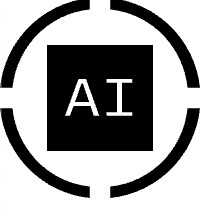BTS and Ethereum: A Comprehensive Comparison

When it comes to the world of cryptocurrencies and blockchain technology, BTS and Ethereum are two names that often come up in discussions. Both have their unique features, use cases, and communities backing them. However, for those looking to invest or get involved in the blockchain space, understanding the differences between these two platforms is crucial.
What is BTS?
BTS, also known as BitShares, is a decentralized exchange and blockchain platform that aims to provide a fast, secure, and low-cost way to trade digital assets. It was created in 2014 by Dan Larimer, who is also the co-founder of EOS. BTS uses a consensus mechanism called Delegated Proof of Stake (DPoS), which allows token holders to vote for delegates who validate transactions on the network.
BitShares has a focus on scalability and speed, with the ability to process up to 100,000 transactions per second.
What is Ethereum?
On the other hand, Ethereum is a decentralized platform that enables developers to build and deploy smart contracts and decentralized applications (DApps). It was proposed by Vitalik Buterin in late 2013 and development began in early 2014, with the network going live on July 30, 2015. Ethereum uses a consensus mechanism called Proof of Work (PoW), but is in the process of transitioning to Proof of Stake (PoS) with the upcoming Ethereum 2.0 upgrade.
Ethereum is known for its flexibility and programmability, allowing for a wide range of use cases beyond simple transactions.
Features Comparison
Speed and Scalability
One of the main differences between BTS and Ethereum is their approach to speed and scalability. While BitShares is designed for high throughput and can handle a large number of transactions per second, Ethereum has been plagued by network congestion and high gas fees during times of high demand. However, Ethereum 2.0 promises to address these scalability issues with its move to PoS.
Use Cases
Another key difference is in the use cases of the two platforms. BitShares is primarily focused on decentralized exchange and trading, making it a popular choice for traders and speculators. On the other hand, Ethereum's smart contract functionality has enabled a wide range of applications, from decentralized finance (DeFi) to non-fungible tokens (NFTs) and more.
Community and Development
Both BTS and Ethereum have active communities and development teams working on improving their respective platforms. BitShares has a loyal following of users who appreciate its speed and security, while Ethereum's large developer community is constantly pushing the boundaries of what is possible with blockchain technology.
In conclusion, BTS and Ethereum are two prominent platforms in the blockchain industry, each with its own strengths and weaknesses. While BitShares excels in speed and scalability for trading digital assets, Ethereum's programmability offers a wide range of use cases beyond simple transactions. Ultimately, the choice between BTS and Ethereum will depend on the specific needs and preferences of the user or investor. By understanding the differences and similarities between these two platforms, individuals can make informed decisions when entering the world of cryptocurrencies and blockchain technology.
Related articles
Latest articles
See more























